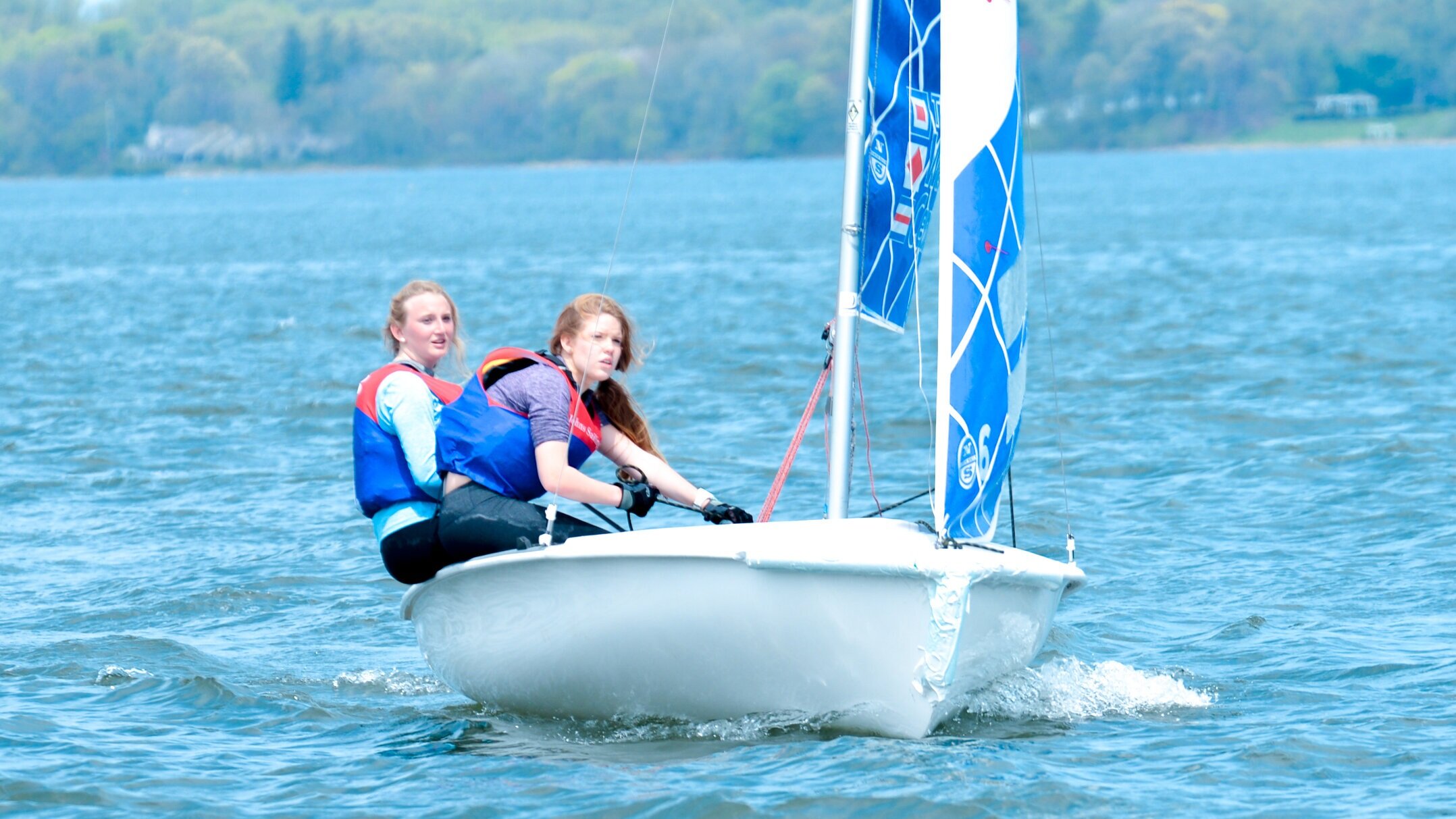Why Youth Sailing is the Right Choice for Your Child this Fall
How can sailing at The WaterFront Center (WFC) benefit your child? Why is it important to keep your child on the water all year round? Sailing is more than just a hobby, it is a competitive Olympic sport that requires muscle strength, endurance/agility, cardiovascular fitness, mental wellness, relaxation, concentration and communication. Youth sailing programs can lead to joining a high school sailing team, college sailing team, or something even more! As a bonus, the WFC’s youth summer program is competitively priced compared to other clubs and sports.
Sailing on a Sunday afternoon can be relaxing, but don’t be fooled! Hoisting and trimming the sails, hiking, roll tacking and jibes all require muscle strength and endurance. Pulling on the lines and moving quickly around the boat can increase your child’s hand-eye coordination and motor skills.
The American Heart Association says, “that in order to improve cardiovascular health, people should be getting at least 150 minutes of moderate exercise, or 75 minutes of vigorous exercise, per week.” Improving cardiovascular health can help reduce the risk of hypertension, obesity and other heart illnesses. WFC Sailing Director, Arielle, says that there are days where she burns up to 4000 calories just from sailing for three hours!
It has been said that being near the sea-air and water can make a person calmer and improve mental well-being. Researchers have said, “minerals in the sea-air reduce stress; negatively charged ions in the air combat free radicals, improving alertness and concentration; salt in the water preserves tryptamine, serotonin and melatonin levels in the brain, which aid in diminishing depression or increasing your overall sense of wellness; and research has demonstrated that the sounds of waves alter the brain’s wave patterns, producing a state of relaxation.” In simple terms, being on the water during sailing can help your child’s mental strength and well-being!
Concentration, communication, science, and math are all necessities in sailing. Concentration is key in order to plan the next attack on the race course, while providing the ability to focus on the proper sail trim in order to capitalize on the next wind line. Communicating with the crew and skipper are essential for successful maneuvering and safety on the water! If sailors are not working as a team, the boat won’t go anywhere. Finally, sailing does not favor those who are just physically strong. Your child will find themselves studying the winds, the clouds and weather patterns like a true scientist in order to make the best tactical decision. Calculating the angle of approach for your sails to catch the most wind and hit the next mark turns your sailor into a mathematician.
Sailing can take your child anywhere! Sailing does not only provide an exciting experience, but it offers a lot of positive benefits for mental and physical health. Sailing can provide unique opportunities later on in life, like joining collegiate sailing teams or entering career paths in the sailing industry upon graduation.
We are going to leave you with this from Arielle, “Sailing has taken me all around the United States and beyond for regattas. I have been able to take part in the Magenta Project’s Marstrom 32 clinic. I was on the team that won the Hinman Trophy for US Sailing’s Team Racing Championships. I’ve had the good fortune to train with some of the top sailors and coaches. I know that through sailing there will be many more exciting events and opportunities to come!” Here at The WaterFront Center, we would love to be the stepping-stone to welcoming your child into this world and sail the course with them.









Sources:
American Heart Association Recommendation for Physical Activity for Adults. American Heart Association, 2014, http://www.heart.org/HEARTORG/HealthyLiving/PhysicalActivity/ FitnessBasics/American-Heart-Association-Recommendations-for-Physical-Activity-in-Adults_UCM_307976_Article.jsp#.WKMW63eZPVo. Accessed 1 February 2017.
Suval, Lauren. Water’s Psychological Benefits, 2014, https://psychcentral.com/blog/archives/ 2014/04/18/waters-psychological-benefits/. Accessed 1 February 2017.


